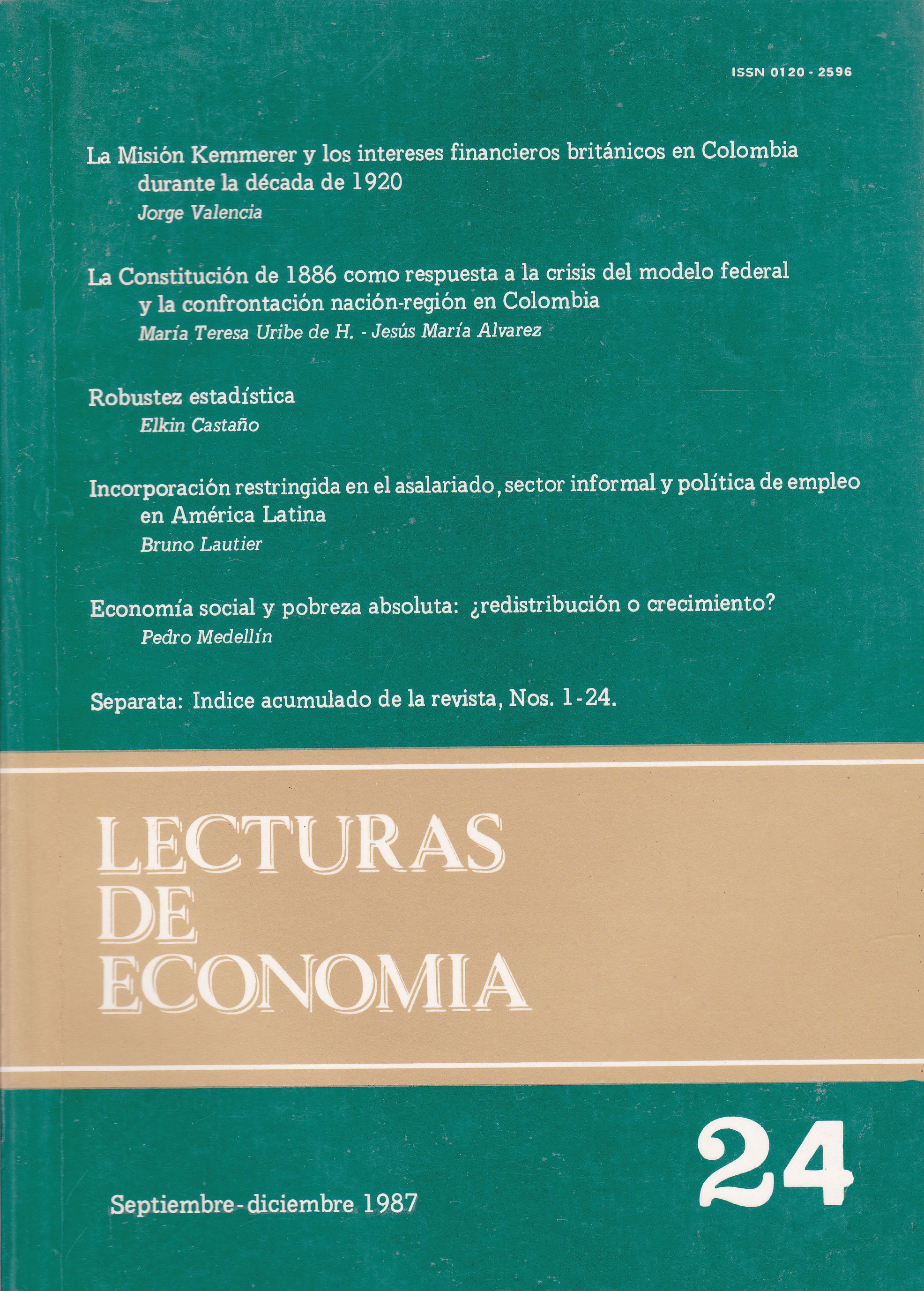Incorporación restringída en el asalariado, sector informal y política de empleo en América Latina
DOI:
https://doi.org/10.17533/udea.le.n24a7770Abstract
• Resumen: En los países capitalistas avanzados la formación de una clase asalariada relativamente homogénea fue un lento proceso que requirió no menos de tres generaciones. Ese tránsito gradual a la salarización no parece presentarse en los países en desarrollo donde la existencia de un amplio sector informal muestra, más bien, una compleja imbricación de lo que en los países de capitalismo avanzado fueron fases sucesivas. Más que una forma de transición o una deformación de algún tipo de relación económica, el sector informal aparece como un tipo de organización económica particular que nivela en su dinámica interna y en su articulación con la economía formal una especial racionalidad que no parece reductible a las interpretaciones que sustentan las políticas que hacía él se orientan. Esto plantea entonces un nuevo tipo de políticas que, teniendo en cuenta su especificidad, superen el tratamiento meramente asistencial y las pretensiones simplistas de formalizar lo informal.
• Abstract: In the advanced capitalist countries, the shaping of a relatively homogeneous wage-earning class was a slow process that lasted at least three generations. This gradual transition to a wage-earning economy doesn't seem to take place in developing countries, where the existence of a wile informal sector entangles in a complex way, and a series of consecutive phases in advanced capitalist countries. More than a form of transition or deformation of some sort of economical relationship, the informal sector appears as a particular type of economies organization. This sector, internally and when joining with the formal economy, develops a special rationality, that can't be encompassed in the interpretations that sustain the policies, directed towards this sector. The latter point of view, states a new type of policy that taking the sector's peculiarities into account, goes beyond the plain assistential treatment and the simplifying clams of formalizing the informal.
Downloads
Downloads
Published
How to Cite
Issue
Section
License
This page, by Universidad de Antioquia, is licensed under a Creative Commons Attribution License.
Authors who publish with this journal agree to retain copyright and grant the journal right of first publication, with the article licensed under a Creative Commons Attribution-NonCommercial-ShareAlike License allowing others to share it as long as they acknowledge its authorship and original publication in this journal.
Authors can enter into separate, additional contractual arrangements for the non-exclusive distribution of the journal's published version of the work (e.g., post it to an institutional repository or publish it in a book), provided that these arrangements be not for profit and the journal be acknowledged as the original source of publication.
Authors are permitted and encouraged to post their papers online (e.g., in institutional repositories or on their websites), as it can lead to valuable exchanges as well as greater citation of the published work.







